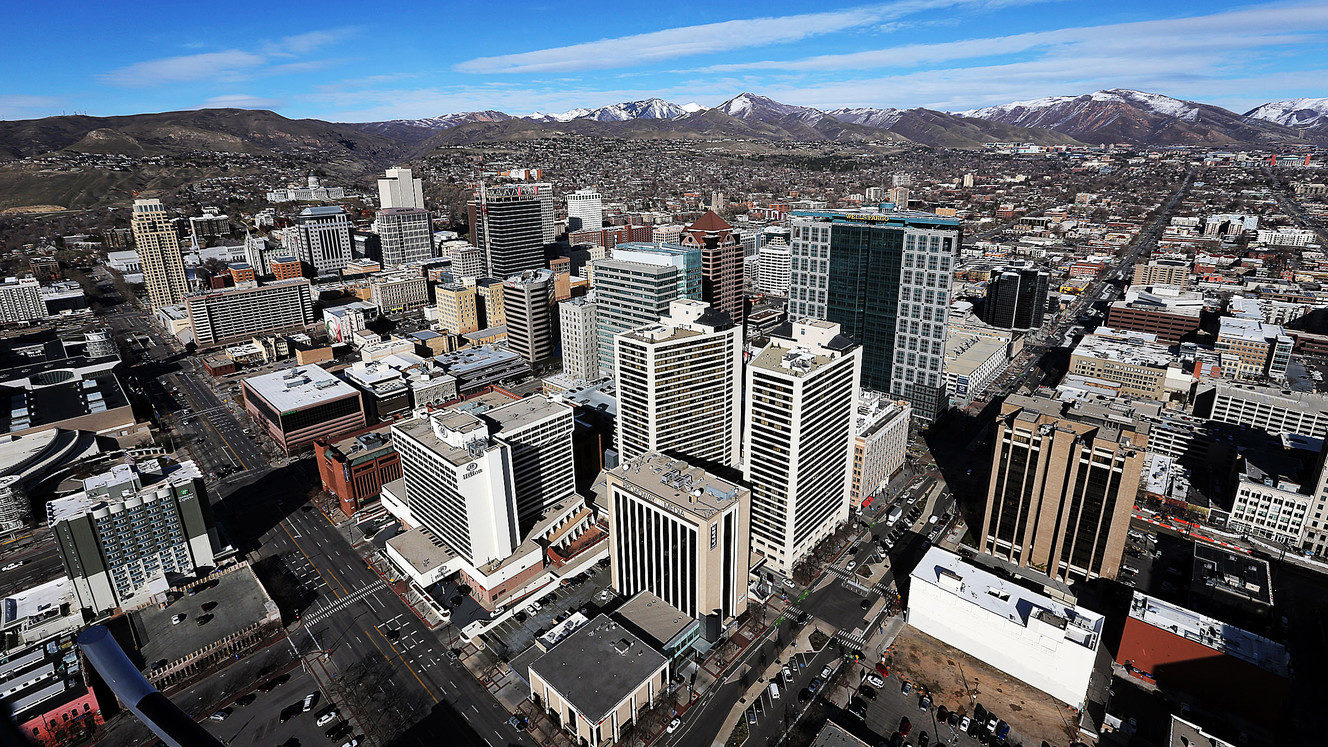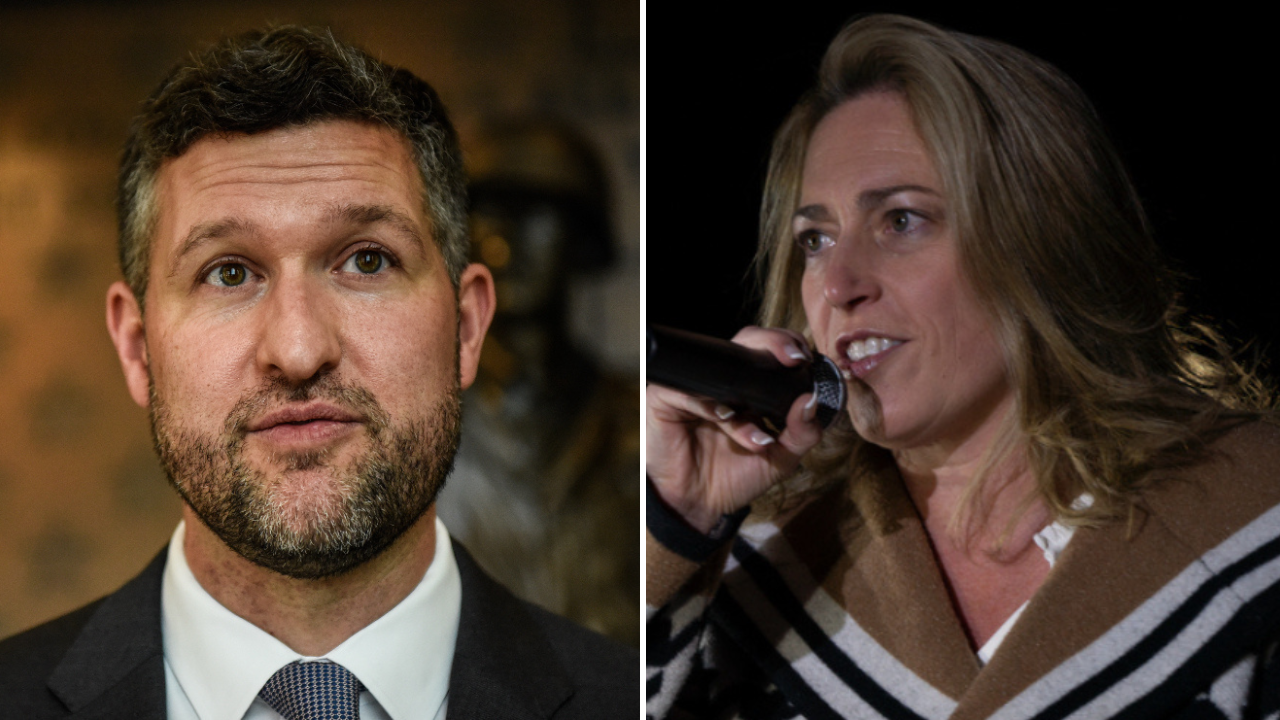World
Out of Africa: Vet groups come to rescue of Afghans on Taliban kill list
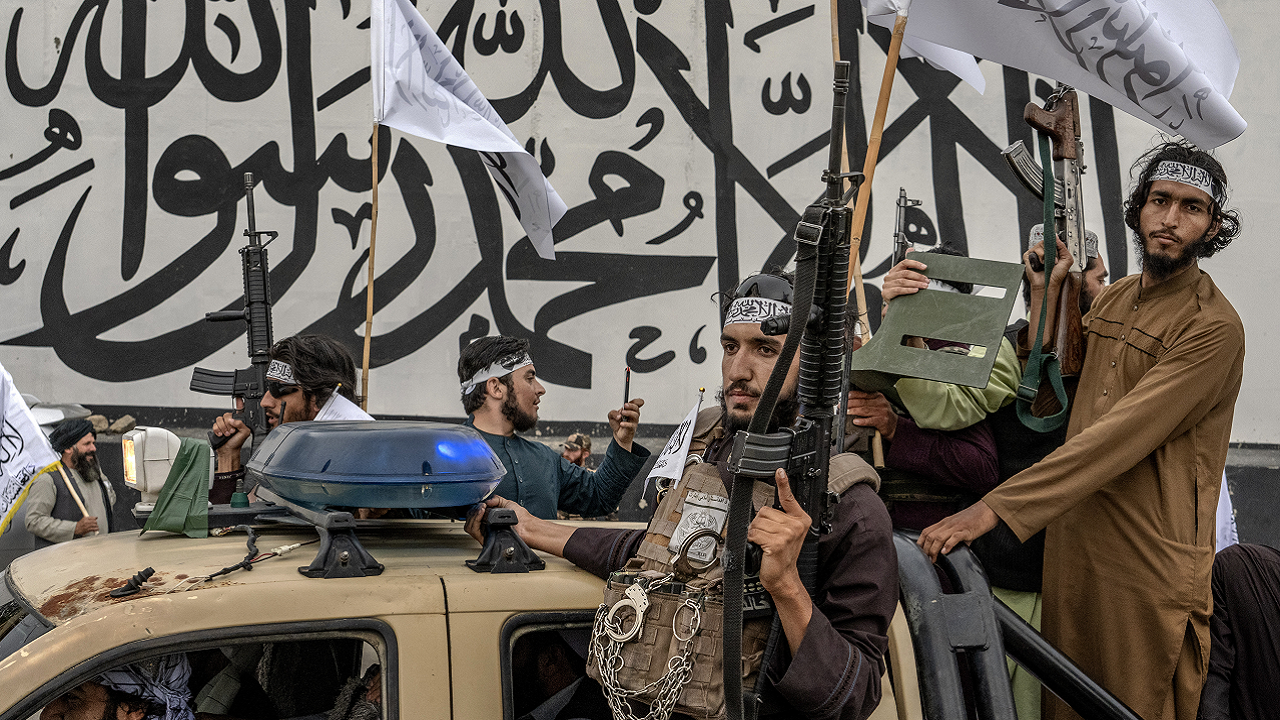
FIRST ON FOX: U.S. veteran and pastor Jonathon Alcocer told Fox News Digital it was by the “grace of God” he was able to return to the U.S. after an 11-week endeavor to secure safety for nearly two dozen Afghans endangered by their support of U.S. personnel before the withdrawal from Afghanistan.
On Feb. 12, Alcocer arrived in Zimbabwe with two other Americans to meet a group of 22 Afghans who were fleeing the Taliban. American handlers had moved quickly to evacuate their flock from Afghanistan after the Taliban released an order in January for local officials to assemble kill lists of all former Afghan military and government personnel. Four of the 22 Afghans were among the more than 152,000 special immigrant visa applicants stuck in Afghanistan while awaiting years of processing for their cases. Eleven were children, ranging in age from 6 months to 15 years old.
Taliban members celebrate one year since they seized the Afghan capital in front of the U.S. Embassy in Kabul, Afghanistan, on Aug. 15, 2022. (AP/Ebrahim Noroozi)
The Afghans had arrived on traveler visas to Zimbabwe on Jan. 21. They spent a week at a safari park to decompress after being confined to the four walls of their Afghan safe houses for 18 months. Because of their high-level positions in the former government, the Afghans had been under threat of reprisal killings, which commenced shortly after the Taliban took control of Afghanistan in August 2021.
After meeting their American handlers, the group members intended to make their way by bus to the South African border, where they would claim asylum. “Everything had been done legally,” Alcocer said, explaining that the nonprofit organization The Lifeline Foundation funded the journey and organized the route. They hoped to establish a pathway that other at-risk individuals could use to escape Afghanistan in the future.
BIDEN ADMIN IGNORES CONGRESSIONAL SUBPOENA FOR AFGHANISTAN DOCUMENTS A THIRD TIME
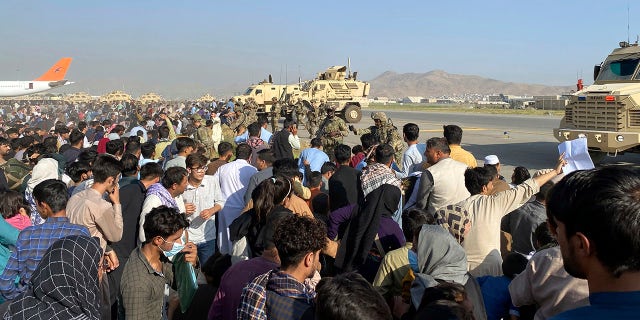
U.S. soldiers stand guard along a perimeter at the international airport in Kabul, Afghanistan, Aug. 16, 2021. (AP Photo/Shekib Rahmani)
Instead, four days later, Alcocer said the bus was “flat out denied entry” by South African officials. In the legal battle that followed, however, he said South Africa was found to have violated international law by refusing to grant the refugees asylum. “As soon as anybody hears ‘Afghan,’ there’s little that they can do, or want to do,” Alcocer explained.
Zimbabwean officials then directed the group’s hired driver to park the bus in a remote area between Zimbabwe and South Africa. Officials collected passengers’ passports. Over the following three days, adults aboard were interrogated. When the bus ran out of gas, the driver was forbidden from purchasing more. The passengers suffered in the intense heat without air conditioning, and had no access to food or water. “Things were nasty,” Alcocer said.
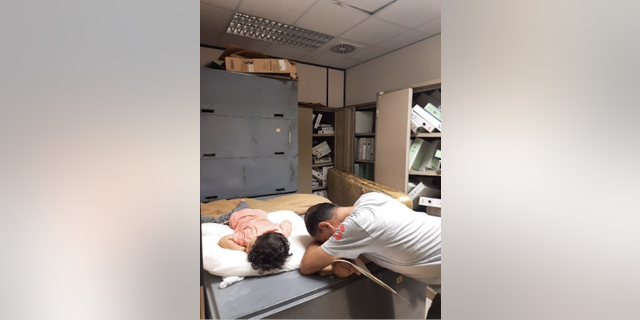
An exhausted Afghan visa applicant keeps watch over his 18-month-old daughter as she sleeps on a metal cabinet in a 90-degree detention facility below Robert Gabriel Mugabe International Airport in Zimbabwe in February 2023. (Jonathon Alcocer)
Then within a few days Alcocer said four Zimbabwean officials “shoved” the group of 25 onto a smaller 15-person bus with a new driver. Along the route to Harare, Alcocer said officials and the driver “were playing psychological operations with us,” trying to provoke the adults into behavior that would justify their arrest and deportation. They played pounding music at excessive volume. The driver and officials consumed alcohol inside the bus, and stopped to buy additional drinks at a bar swarming with prostitutes. Each time the driver stopped to relieve himself, Alcocer saw him expose his genitals to the children.
For the duration of the drive, children were forbidden from leaving the bus to use the restroom. “I had kids sitting in their own urine and feces for roughly six-and-a-half hours,” Alcocer said.
STATE DEPT BRIEF ON AFGHANISTAN WITHDRAWAL DISSENT CABLE AN ‘INSULT’ TO DEAD SERVICEMEMBERS, CONGRESSMAN SAYS
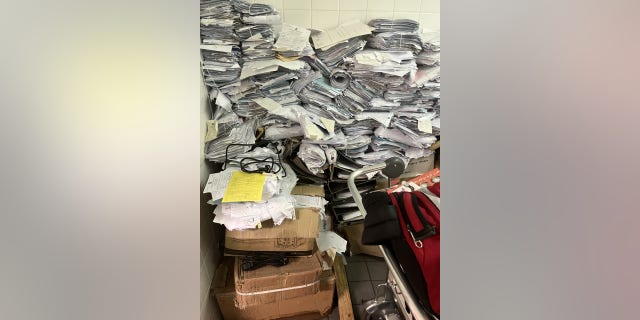
Paperwork containing personal information of travelers was piled in the detention facility where 22 Afghan refugees were forced to stay in Zimbabwe’s Robert Gabriel Mugabe International Airport in February 2023. (Jonathon Alcocer)
Eventually, Alcocer said officials took the group to police headquarters. When the Americans and refugees refused to bribe the officials, they were transported to an immigration building, where officials gave the group seven hours to exit the country. After the entire party arranged means to exit within this timeframe, officials cut the timeline to just four hours. Complying with the shortened timeline proved impossible. Zimbabwean officials charged all three Americans with 22 counts of human trafficking, each carrying a two- to three-year sentence.
Eventually, Alcocer said two officials from the U.S. Embassy arrived to de-escalate the situation. Zimbabwean officials dropped the charges. They told the group they could depart the country the following day, and would be given a room for the night. Alcocer said the room was “a detention cell in the basement of the airport.”

A group of 22 legal Afghan refugees and their American handler were given mattresses and box springs without sheets to sleep on when detained in Robert Gabriel Mugabe International Airport in Zimbabwe in February 2023. (Jonathon Alcocer)
He said, “U.S. Embassy [officials] watched” as Zimbabwean officials padlocked Alcocer and 22 Afghans into a confinement cell, where the temperature was around 90 to 100 degrees. For a little over 24 hours, “all they would give us [were] apples, which we had to pay for, and bottles of water,” Alcocer said.
He provided Fox News Digital photographs of spaces filled with bare mattresses, piles of used electronics, and mountains of stamped paperwork filled with travelers’ personal information. Insects climbed the walls and swam in dirty toilets that flooded a room where five children slept. Alcocer said the cell contained no toilet paper or working sink, and only one working toilet. He explained that the officials only released the detainees and returned their passports moments before they boarded flights for Zambia.
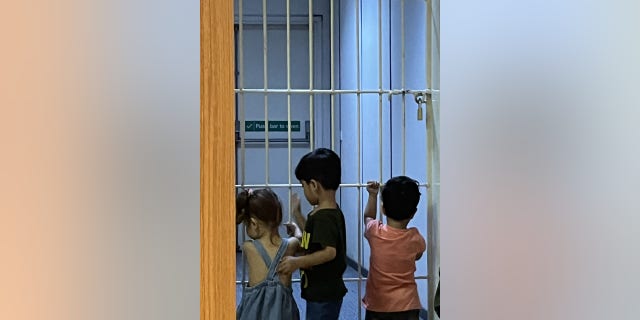
Eleven children were among the 22 Afghan refugees padlocked into a detention facility in Robert Gabriel Mugabe International Airport in Zimbabwe in February 2023. (Jonathon Alcocer)
In response to questions about Alcocer’s allegations, a State Department spokesperson acknowledged U.S. citizens “were briefly detained in Zimbabwe and released,” and that personnel in the airport had “raised… concern that U.S. citizens detained in Zimbabwe be treated fairly at all levels.” The Zimbabwean Department of Immigration did not respond to requests for comment.
ISIS USING AFGHANISTAN AS STAGING GROUND FOR TERROR PLOTS AFTER US WITHDRAWAL: REPORT
Alcocer remained in Zambia for weeks to ensure the Afghans secured safe haven. The SIV applicants in his care fear being killed if they are forced to return to Afghanistan. Two applicants are former commandos who have survived in hiding only through the financial, medical and other support of evacuation volunteers with Operation North Star, Flanders Fields, and the Moral Compass Federation.

Alcocer relaxes with Afghan refugee children while working to secure their visas in Zambia. (Jonathon Alcocer)
The commandos often receive photos and videos of former colleagues who have been killed for working in the Afghan National Defense and Security Forces. Alcocer said the Taliban does not always stop at harming their direct enemies. He provided photographs of two girls, ages 7 and 12, whose arms were cut off below the elbows because their father served in the Afghan military.
Late last month, Alcocer was able to return to the U.S. after Zambian President Hakainde Hichilema helped him secure renewable one-year visas for the Afghans in his care. “Words can’t describe the emotions I felt knowing that the families [are] safe,” Alcocer said.
The 22 Afghans remain in Zambia as they await the processing of special immigrant visas to the U.S., which would eventually lead to a path to citizenship, but that process is reportedly facing a major backlog of several years.

World
South Africa's Ramaphosa set to be re-elected despite ANC hammering

World
Cambodian authorities burn $70M of seized illegal drugs in major crackdown

- Cambodian authorities have destroyed over seven tons of illicit drugs and ingredients.
- 4.1 tons of the destroyed substances were drugs like heroin, marijuana, methamphetamine, ecstasy and ketamine.
- Gen. Meas Virith said the destroyed drugs had a wholesale value of $22.7 million and a street value of nearly $70 million.
Cambodian authorities on Friday destroyed more than seven tons of illicit drugs and the ingredients for them, as a drug-fighting official said educating people about their danger is the best way of combating the illegal trade.
Some 4.1 tons of the destroyed items were drugs including heroin, marijuana, methamphetamine, ecstasy and ketamine that had been confiscated from traffickers across the country, the National Authority for Combating Drugs said. The remaining 3.2 tons were various chemicals and other ingredients used to produce illegal drugs, it said.
Gen. Meas Virith, secretary general of the drug-fighting agency, said the drugs that were burned in a brick kiln at a ceremony on the outskirts of the capital, Phnom Penh, had an estimated wholesale value of $22.7 million and a street value of nearly $70 million. Had they not been seized, they could have harmed millions of people, he said.
CAMBODIA’S PIONEERING POST-KHMER ROUGE ERA PHNOM PENH POST NEWSPAPER WILL STOP PRINT PUBLICATION
He said the best way now to fight illegal drugs is by educating Cambodians from all walks of life about the dangers they pose. To teach people not to use or traffic illicit drugs is better than just cracking down on those criminally involved, he said.
Cambodian officers burn drugs inside a brick kiln during a drug destruction ceremony to mark the International Day against Drug Abuse and Illicit Trafficking outside Phnom Penh, Cambodia, on June 14, 2024. (AP Photo/Heng Sinith)
“As you are aware, if we use only crackdown measures, then we need to do so repeatedly. Let’s say this year we burn these things, and next year we will do it again,” he said. “But if we invest in drug education, awareness and protection, then drug activities would be reduced.”
Meas Virith said the authorities pursued more than 3,800 drug-related cases in the first five months of this year, arresting more than 10,000 people, including foreigners.
The production and trafficking of synthetic drugs, especially methamphetamine, are at record highs in Southeast Asia and pose a major threat to its societies, according to the United Nations Office on Drugs and Crime.
“Seizures of crystal methamphetamine have increased year-by-year in Cambodia for the seventh year in a row, reaching over 1.4 tons in 2023, showing the ongoing expansion of the market for the drug in the country,” the U.N. agency said in a report last month.
“The amount of heroin seized doubled in 2023. This increase in heroin seizures was observed in multiple countries in East and Southeast Asia, possibly indicating a reinvigoration in the heroin market in the region after declining seizures the previous year.”
World
Pope Francis attends G7 summit in historic first
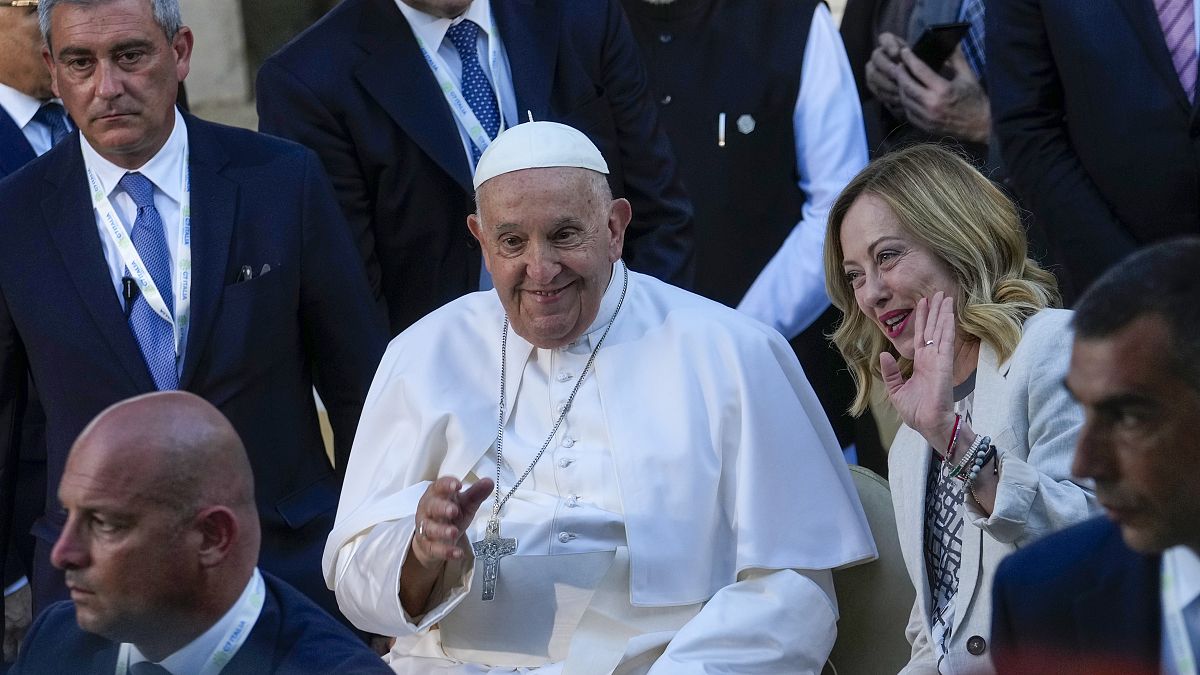
The pontiff brought his moral authority to bear on the Group of Seven, invited by host Italy to address a special session on the perils and promises of AI.
Pope Francis has addressed leaders at the G7 Summit in southern Italy, the first pontiff to do so.
Speaking at a special roundtable, the Pope challenged them to keep human dignity foremost in developing and using artificial intelligence, warning that such powerful technology risks turning human relations themselves into algorithms.
“Faced with the marvels of machines, which seem to know how to choose independently, we should be very clear that decision-making, even when we are confronted with its sometimes dramatic and urgent aspects, must always be left to the human person,” he said.
“We would condemn humanity to a future without hope if we took away people’s ability to make decisions about themselves and their lives, by dooming them to depend on the choices of machines.”
Francis brought his moral authority to bear on the Group of Seven, invited by host Italy to address a special session on the perils and promises of AI.
In doing so, he offered an ethical take on an issue that is increasingly on the agenda of international summits, government policy and corporate boards.
Francis said politicians must take the lead in making sure AI remains human-centric, so that decisions about when to use weapons or even less-lethal tools always remain made by humans and not machines.
He also took a swipe at autonomous weapons, saying it should never be left to machines to decide whether or not to kill a person.
“Allow me to insist, in light of the tragedy that is armed conflict, it is urgent to reconsider the development and use of devices like the so-called ‘lethal autonomous weapons’ and ultimately ban their use. This starts from an effective and concrete commitment to introduce ever greater and proper human control. No machine should ever choose to take the life of a human being,” he said.
The G7 final statement largely reflected his concerns. Leaders vowed to better coordinate the governance and regulatory frameworks surrounding AI to keep it ‘human-centered.’
At the same time, they acknowledged the potential impacts on the labour markets of machines taking the place of human workers and on the justice system of algorithms predicting recidivism.
“We will pursue an inclusive, human-centred, digital transformation that underpins economic growth and sustainable development, maximizes benefits, and manages risks, in line with our shared democratic values and respect for human rights,” they said.
By attending the summit, Francis joined a chorus of countries and global bodies pushing for stronger guardrails on AI following the boom in generative AI kickstarted by OpenAI’s ChatGPT chatbot.
On the weapons issue, G7 leaders said they recognised the impact of AI in the military domain “and the need for a framework for responsible development and use.” They encouraged states to make sure “military use of AI is responsible, complies with applicable international law, particularly international humanitarian law, and enhances international security.”
-

 Movie Reviews1 week ago
Movie Reviews1 week agoFilm Review: I Used To Be Funny offsets its humorously-adjacent title with a dark, heartbreaking temperament. – The AU Review
-

 News1 week ago
News1 week agoWoman handcuffed in police car hit by freight train reaches $8.5M settlement
-
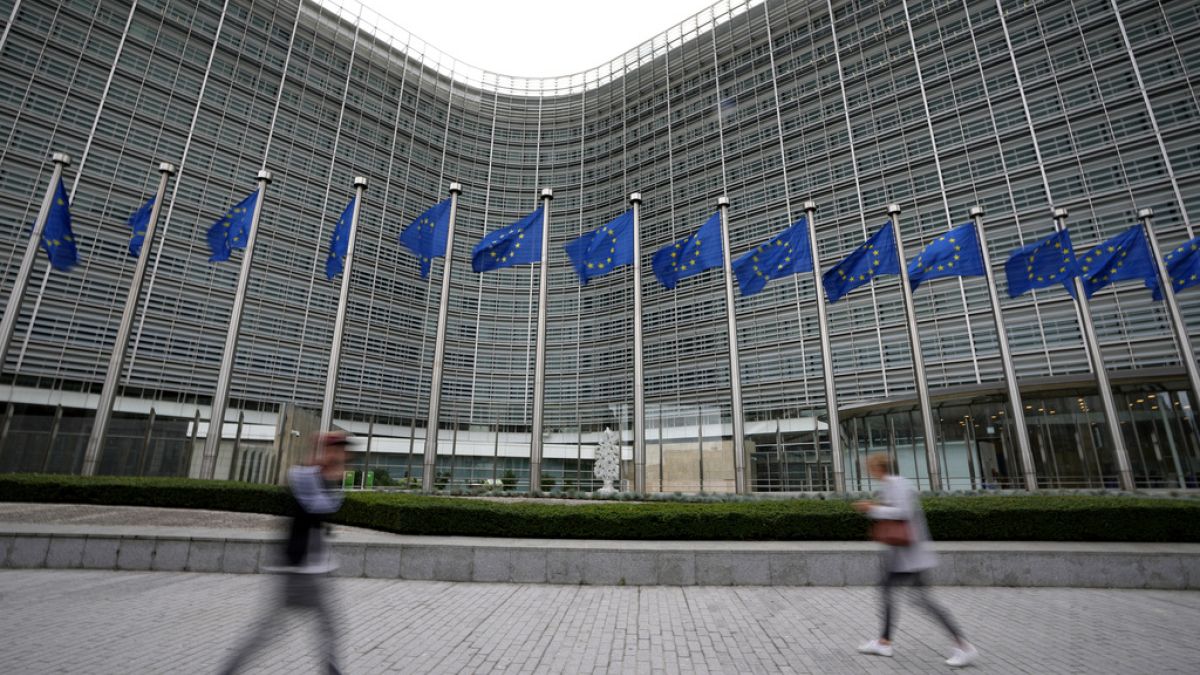
 World1 week ago
World1 week agoEconomy, migration: Voters' main concerns ahead of elections
-

 Politics1 week ago
Politics1 week agoTrump campaign accelerates vetting of potential running mates
-

 Politics1 week ago
Politics1 week ago'It's absurd': Congress takes bipartisan action after Cuban officials' tour secure parts of major airport
-
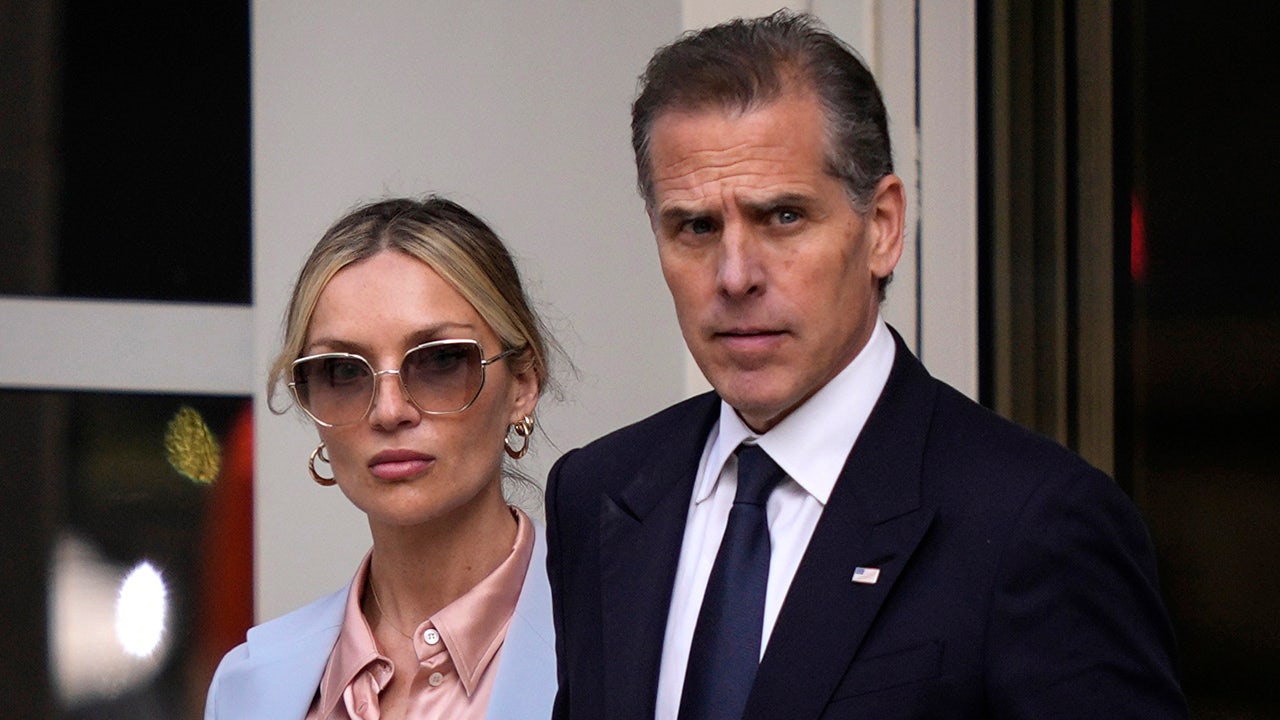
 Politics1 week ago
Politics1 week agoHunter Biden trial enters 3rd day with cross-examination of FBI agent
-

 News1 week ago
News1 week agoIsrael used a U.S.-made bomb in a deadly U.N. school strike in Gaza
-

 World1 week ago
World1 week agoFamine ‘likely’ already stalking northern Gaza: Report


